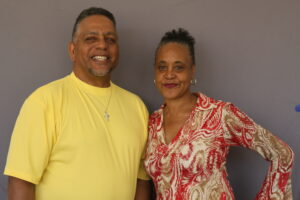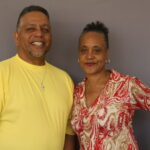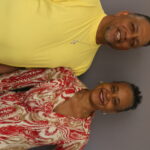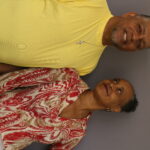Description
Dwania Kyles (67) speaks with friend and fellow member of the Memphis 13 Leandrew Wiggins (68). The two discuss their differing experiences as members of the initial group of Black first graders who integrated Memphis schools during desegregation.Subject Log / Time Code
Leandrew (L) recalls being an alternate for the Memphis 13 and being chosen last minute due to his father being a member of the NAACP.
Dwania (D) discusses her parents who were civil rights activists and moved from Chicago to Memphis.
L remembers being the second Black family to move into his neighborhood in Memphis and recalls taking a cab to school.
L speaks about being separated from the 3 other Black students who attended Rozelle Elementary School.
L discusses the process of unearthing the trauma he experienced at 5 years old through speaking with other members of the Memphis 13.
D describes the differences between L’s school, which was more “blue collar,” and her own school, which was more “white collar”.
D remembers feeling isolated at Cummings, the school she attended, and remembers older girls coming into the bathroom and asking her to show them her “tail.”
D unpacks the reasoning for bringing the Memphis 13 into schools “as babies” versus as high schoolers.
D recalls the feeling of “no relief” when she was stuck between a majority white school and her own community.
D explains her decision to go to Spelman and Howard after doing her part for integration.
L and D reflect on why their parents “opted in” to the Memphis 13.
Participants
- Dwania Kyles
- Leandrew Wiggins



